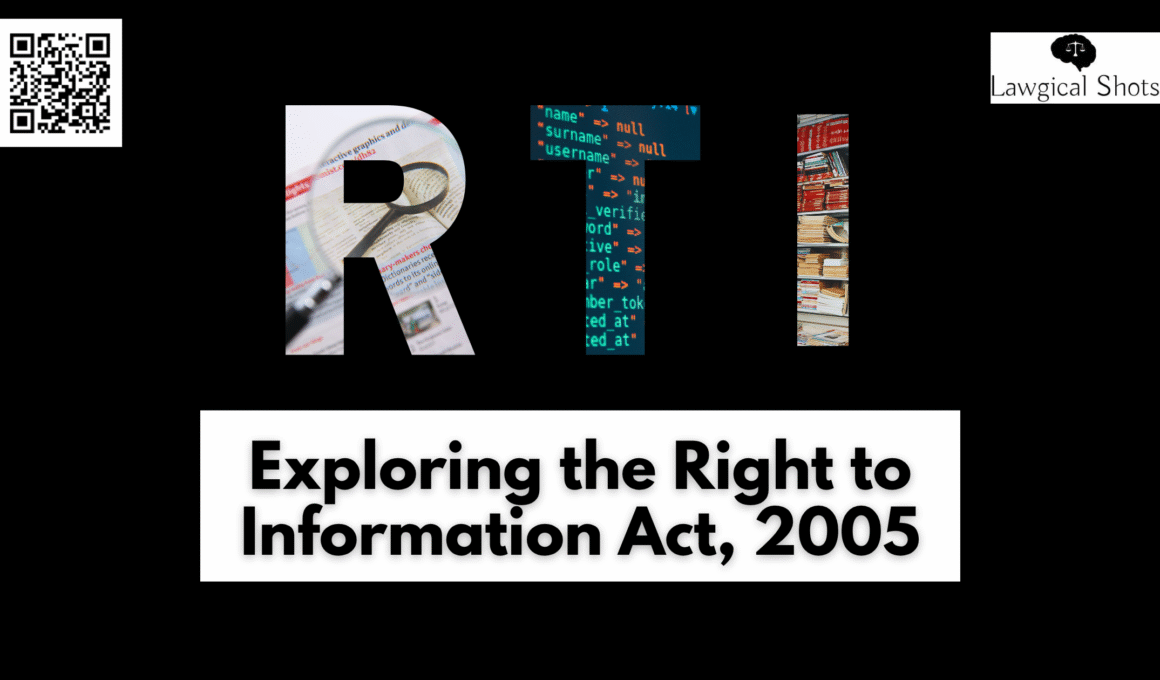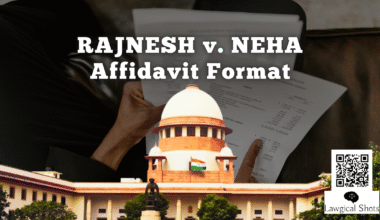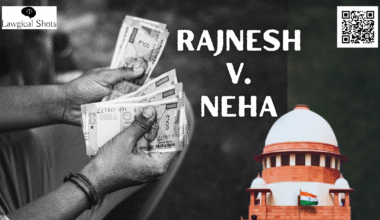They say a democracy is effective when the government is answerable to the people. But how do people know what their representatives and public servants are doing behind closed doors? To address the gaps, the Right to Information Act, 2005 was brought into existence. This laid the foundation of a practical regime for RTI, that is the right to information, for the people of India. It ensures access to information under the control of public authorities promoting transparency and accountability in government offices. Another target is to contain corruption while holding government and their instrumentalities accountable. Let us explore all about right to information and the RTI Act hereunder.
What is the Right to Information Act?
It is a statute which extends to the citizens of India the legal right to access information. As mentioned above, it is usually the information held by government bodies. However, it can be private bodies as well in certain cases. The main purpose of RTI under Right to Information Act is to promote transparency and accountability in public authorities.
What is RTI?
RTI stands for “Right to Information”. It is a legal right of the citizens to have access to certain information. The said information could be related to public authorities and also private bodies in certain cases. The right is confined to the citizens of India. In other words, a foreigner or citizen of another country is not eligible to RTI under the Act.
As per Section 2 (j) of Right to Information Act, RTI is all about access to information held by or under control of public authority. It includes the following:
- inspection of work, documents, records;
- taking notes, extracts or certified copies of documents or records;
- taking certified samples of material;
- obtaining information in the form of diskettes, floppies, tapes, video cassettes or in any other electronic mode or through printouts where such information is stored in a computer or in any other device.
Is the RTI Act, 2005 a fundamental right?
If we talk about the six fundamental rights as embedded under the Part 3 of the Indian Constitution, it does not expressly talk about the right to information. Article 19 (1) (a) of the Constitution is all about people’s right to express themselves. Courts at times have portrayed the “Right to Know” as a part of the fundamental right under the broader Right to expression. Thus, the right to information is somewhat covered under the fundamental rights. Technically speaking, it is more of a legal right as granted through the Right to Information Act of 2005. If it complies with the restrictions laid under the RTI Act, it becomes a fundamental right to information.
Who is eligible for RTI?
The first and foremost aspect about the eligibility for RTI is citizenship. The right to information in India is only available to the citizens of India. It also includes Non-Resident Indians (NRIs). Anyone who is a foreign national, a citizen of any country other than India, is not eligible for exercising the right to information here. Non-Indian organizations are also barred from RTI requests. However, an Indian acting on behalf of the said foreign organization can exercise the right to information being a citizen of India.
Apart from citizenship, there is no age limit for RTI applications in India. In fact, people don’t even need to give any reasoning or justification as to why they need a particular information. So if someone asks “Who cannot file an RTI?”, the answer is an Indian citizen….that’s all.
What are the Duties of Public Authorities?
Since the advent of Right to Information Act, 2005, the Public Authorities are required to maintain all its records in a duly catalogued and indexed manner. The said records should be appropriate to be computerised and connected to a network to facilitate access across the country. The following information has to be published since enactment:
- Particulars of its organisation, functions and duties
- Powers and duties of its officers and employees
- Procedure followed in the decision making process, including channels of supervision and accountability
- Norms set by it for the discharge of its functions
- Rules, regulations, instructions, manuals and records, held by it or under its control or used by its employees for discharging its functions
- Statement of the categories of documents that are held by it or under its control
- Particulars of any arrangement that exists for consultation with, or representation by, the members of the public in relation to the formulation of its policy or implementation
- Statement of the boards, councils, committees and other bodies consisting of two or more persons constituted as its part or for the purpose of its advice, and as to whether meetings of those boards, councils, committees and other bodies are open to the public, or the minutes of such meetings are accessible for public
- directory of its officers and employees
- monthly remuneration received by each of its officers and employees, including the system of compensation as provided in its regulations
- budget allocated to each of its agency, indicating the particulars of all plans, proposed expenditures and reports on disbursements made
- maimer of execution of subsidy programmes, including the amounts allocated and the details of beneficiaries of such programmes
- particulars of recipients of concessions, permits or authorisations granted by it
- details in respect of the information, available to or held by it, reduced in an electronic form
- Particulars of facilities available to citizens for obtaining information, including the working hours of a library or reading room, if maintained for public use
- Names, designations and other particulars of the Public Information Officers
- Publish all relevant facts while formulating important policies or announcing the decisions which affect public
- Provide reasons for its administrative or quasi-judicial decisions to affected persons
How to file an RTI application?
Since the purpose of Right to Information Act, 2005 is to make information accessible, the application process is no rocket science. All you need to do is either make a hand-written, typed or computer printed application on a plain paper. The language used may be English, or any other official language of the State/Organization. On top of it should specify that it is an application under RTI Act, 2005.
The said RTI application form is addressed to the competent authority/ Public Information Officer. Provide details like name of the Ministry/Department, applicant name, address, educational details, phone numbers, email id, citizenship details, etc. The specifics of information sought should be crisp and clear to clearly convey the query of the RTI Applicant. Any description or supported documents may be attached. The RTI Application should be accompanied by the prescribed fee.
Which information cannot be given in RTI?
Though there is a right to information, there are certain limitations. Section 24 lays about when the RTI Act would not apply. Given below are the intelligence and security organisations In which cases RTI can be rejected:
- Intelligence Bureau.
- Research and Analysis Wing including its technical wing namely, the Aviation Research Centre of the Cabinet Secretariat.
- Directorate of Revenue Intelligence.
- Central Economic Intelligence Bureau.
- Directorate of Enforcement.
- Narcotics Control Bureau.
- Special Frontier Force.
- Border Security Force.
- Central Reserve Police Force.
- Indo-Tibetan Border Police.
- Central Industrial Security Force.
- National Security Guards.
- Assam Rifles.
- Sashtra Seema Bal.
- Directorate General of Income-tax (Investigation).
- National Technical Research Organisation.
- Financial Intelligence Unit, India.
- Special Protection Group.
- Defence Research and Development Organisation.
- Border Road Development Board.
- National Security Council Secretariat.
- Central Bureau of Investigation.
- National investigation Agency.
- National Intelligence Grid.
- Strategic Forces Command.
Section 24 further extends an exception to when the Act shall apply to the aforementioned organizations. It states that when there are allegations of corruption or human rights violations. In such cases, RTI applications shall be allowed and information be provided within 45 days.








